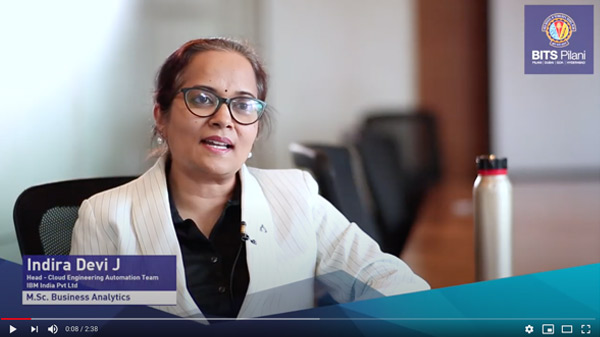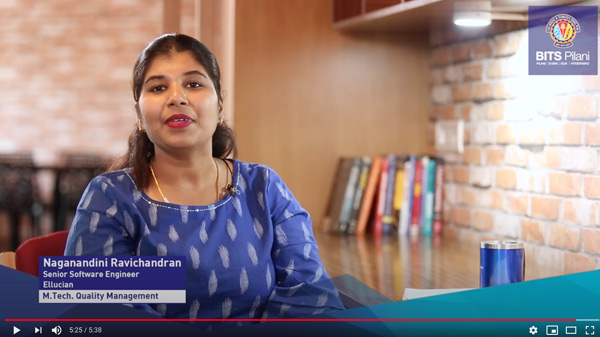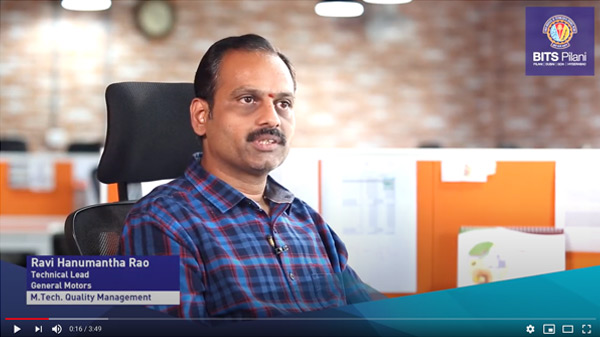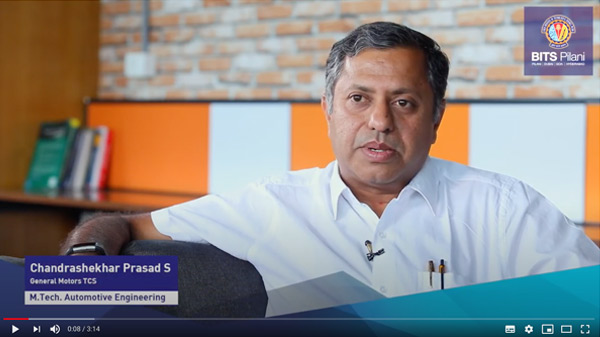Rewrite the future of the Power industry
The total installed capacity of power plants in India is expected to increase by threefold in fifteen years from now. There is a need to generate sufficient human resources to understand the theory behind the generation of power and operation of power plants. This may help the existing power sector companies to plan their expansion and diversification projects. Operation of power plants with human resources without sufficient theoretical knowledge of power generation may lead to unforeseen shut down resulting in power loss and economic loss to the company.
The seven-semester B.Tech. Power Engineering programme under the Work Integrated Learning Programme for working professionals is designed to provide sufficient fundamental, technical and managerial courses with the view to develop human resources to successfully run the power plants and ensure reliability of operation.
Programme Highlights
- Industry-relevant curriculum, delivered online or on-site lectures.
- The Dissertation (Project Work) in the final semester enables students to apply concepts and techniques learnt during the programme.
- The programme uses a Continuous Evaluation System that assesses the learners over convenient and regular intervals. Such a system provides timely and frequent feedback and helps busy working professionals stay on course with the programme.
- The education delivery methodology is a blend of classroom and experiential learning. Experiential learning consists of lab exercises, assignments, case studies and work-integrated activities.
- Participants who successfully complete the programme will become members of an elite & global community of BITS Pilani Alumni.
Programme Curriculum
Participants need to take at least 24 courses towards coursework, and complete one Project/ Dissertation. The coursework requirement for the programme would consist of a set of core courses and electives. Core courses are compulsory for all participants, while electives can be chosen based on individual learning preferences.
The programme offers a degree of customisation to address the specific L&D needs of your organisations.
- Electrical & Electronics Technology
- Computer Programming
- Thermodynamics
- Calculus
- Linear Algebra & Optimization
- Engineering Measurements
- Transport Phenomena
- Microprocessors & Microcontrollers
- Power System Engineering I
- Instrumentation & Control
- Maintenance & Safety
- Power Plant Engineering
- Quality Control, Assurance & Reliability
- Prime Movers and Fluid Machines
- Power System Engineering
- Power Electronics
- Essentials of Project management
- Elective 1
- Elective 2
- Elective 3
- Principles of Management
- Technical Report Writing
- Elective 4
- Elective 5
Project Work
- Energy Management
- Environmental Pollution Control
- Power System Operation and Control
- Process Control
- Power System Drawing & Design
- Renewable Energy
- Plant Layout & Design
- Quality Control, Assurance & Reliability
- Environmental impact Assessment
- Power plant erection and commissioning
Learning Methodology
LECTURES DELIVERED ONLINE AND ONSITE
Lectures are delivered by BITS Pilani faculty members live via online classes, or at the organisation's premises, and are designed to offer similar levels of interactivity as regular classrooms at the BITS Pilani campus.
DIGITAL LEARNING
Learners can access engaging learning material at their own pace which includes recorded lectures from BITS Pilani faculty members, course handouts and recorded lab content where applicable.
CONTINUOUS ASSESSMENT
Continuous Assessment includes graded Assignments/ Quizzes, Mid-semester exam, and Comprehensive Exam.
EXPERIENTIAL LEARNING
The programme emphasises on Experiential Learning that allows learners to apply concepts learnt in the classroom in simulated, and real work situations. This is achieved through:
CASE STUDIES AND ASSIGNMENTS
Carefully chosen real-world cases & assignments are both discussed and used as problem-solving exercises during the programme.
DISSERTATION/ PROJECT WORK
The seventh semester offers an opportunity for learners to apply their knowledge gained during the programme to a real-world like complex project. The learner is expected to demonstrate understanding of vital principles learnt across semesters and their ability to successfully apply these concepts.
Eligibility Criteria
Minimum eligibility to apply: Working professionals holding Diploma in Engineering/ B.Sc. in relevant disciplines, with at least 60% aggregate marks, adequate preparation in Mathematics, and minimum of two years of work experience in relevant domains.
Students with a Diploma in Engineering or a Graduation in Maths, Physics or Chemistry with at least two years of working experience in the power sector are considered for admission.
The programme is designed for:
- This is a specially designed Work-Integrated Learning Program for catering to the HRD requirements of a diverse spectrum of Electrical Power Generation/ Transmission/Distribution Industries.





.png)
.png)
.png)
.png)
.png)